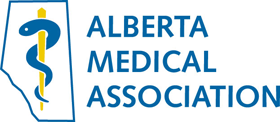When Medication is Not the Answer

 Contributed by:
Contributed by:
Case
Mrs. Grey is a 91-year-old woman who is a resident in a seniors’ lodge where she receives meals and assistance with bathing and dressing. She has a diagnosis of Alzheimer’s disease which was treated briefly with donepezil, but this medication was discontinued. She is on no other medications. Mrs. Grey was usually pleasantly confused and easily redirected, but she gradually became resistant to assistance with her personal care, becoming angry and even throwing a shampoo bottle at a health care aide. At other times, she would bang on the walls and shout, but would deny these actions when an aide would respond to the disruption. Several times, she stuffed the toilet with tissue, causing it to overflow and requiring a visit to her suite by maintenance staff. One day in early May she became extremely agitated with no identifiable trigger and was taken to the emergency room for hospital admission due to the inability of the already overworked lodge staff to safely manage her behavior.
Issue
Challenging behaviors are difficult to manage even with optimal care, and many residents suffered from the effects of prolonged isolation during the COVID-19 pandemic.
Background
Residents and staff in communal living facilities were severely and disproportionately affected by illness and death due to the COVID-19 pandemic and by the restrictions required to control its spread. Staff shortages due to illness and quarantine periods were common, and staff were often pushed to their limits in caring for residents without the assistance normally provided by family members and other volunteers.1
Evidence
Canadian data indicate that most residents of long term care are over 80 years of age and that 70% of them have dementia.2 Many patients with dementia develop behaviors that may be challenging for caregivers and often do not respond to treatment with medications, which can cause sedation and other side effects, and increase risk of falls.3 Behavioral and psychological symptoms of dementia (BPSD) are experienced by approximately 90% of dementia patients, and “nearly two-thirds of people with dementia living in care homes are experiencing these symptoms at any one time.” Although atypical antipsychotics may provide slight benefit in short term (6-12 weeks) treatment of aggression and psychosis, psychosocial interventions and treatments based on thorough assessment of pain and other medical conditions are first-line recommendations.4
Back to the Case
Mrs. Grey was assessed in hospital and found to have no acute medical cause for her change in behavior like an infection or stroke. Initially, she was resistant to nursing care, but settled fairly quickly with consistent attention. Her appetite in hospital was good. She was started on trazodone 12.5 mg prn for agitation or sleep, which had not been a problem for her in the lodge, but this was discontinued when she became dizzy and had a minor fall in the bathroom, witnessed by staff. The fall did not result in any injuries. Mrs. Grey was discharged back to her lodge after four days in acute care with no incidents of disruptive behavior. Unfortunately, two days after returning to the lodge, she again stuffed the toilet with tissue and caused it to overflow. She was angry and aggressive with aides and maintenance staff who responded to the incident, but they were able to manage her behavior with one-on-one attention and listening to music4,5 in the building manager’s office while the toilet was being unclogged.
Coincidentally, visitor restrictions to supportive living, long term care and hospice facilities due to the COVID-19 pandemic were eased that same week in May,6 and with the return of her partially COVID-vaccinated son and daughter-in-law to help with some of her personal care as designated family/support persons, and outdoor visits permitted with her grandchildren and great-grandchildren, Mrs. Grey had fewer outbursts with lodge staff. Her family brought in some small boxes of facial tissue for her suite and the staff removed extra rolls of toilet tissue from her bathroom, checking daily to ensure she had enough for reasonable use. Because all of the residents of the lodge were now fully vaccinated, meals in the dining room were able to resume and the residents were again allowed to visit with each other in the common areas.
This case highlights the invaluable care families provide even in group living locations. The family members are directly assisting the resident in addition to the services that the staff provide. This family assistance is essential to the care and well-being of many residents in these types of facilities, and this was a key factor in allowing designated family/support persons back into facilities once the residents were adequately vaccinated for COVID-19. In this particular case, the resident was more cooperative with her family members providing assistance with bathing and dressing than she was with lodge staff, and the staff were grateful for their participation in her care.
Mrs. Grey will likely require a higher level of care in the not-too-distant future due to the progressive nature of Alzheimer’s disease, but the recent behaviors she was exhibiting are attributable to the prolonged isolation and disruption of routines caused by the pandemic. Medications such as trazodone which are sometimes trialed for behaviors were not appropriate in her case as they caused sedation and increased her risk of falls, as demonstrated in hospital.
References
- Graff-McCrae, Rebecca. (2021). Time to Care: Staffing and Workloads in Alberta Long-Term Care Facilities - Parkland Institute. [Online] Available: https://www.parklandinstitute.ca/time_to_care
- Hsu A. T. & Lane N. E. (2020). Report: Impact of COVID-19 on residents of Canada’s long-term care homes — ongoing challenges and policy response. Article in LTCcovid.org, International Long-Term Care Policy Network, CPEC-LSE.
- Harrison, S.L., Cations, M., Jessop, T. et al. Approaches to Deprescribing Psychotropic Medications for Changed behaviors in Long-Term Care Residents Living with Dementia. Drugs Aging 36, 125–136 (2019).
- Optimising treatment and care for people with behavioral and psychological symptoms of dementia: A best practice guide for health and social care professionals. [Online] Available: https://www.alzheimers.org.uk/sites/default/files/2018-08/Optimising%20treatment%20and%20care%20-%20best%20practice%20guide.pdf?downloadID=609 Accessed June 21, 2021.
- Orii McDermott, Nadia Crellin, Hanne Mette Ridder, Martin Orrell. Music therapy in dementia: a narrative synthesis systematic review. International Journal of Geriatric Psychiatry Volume 28, Issue 8 (August 2013). https://doi.org/10.1002/gps.3895
- Government of Alberta [Online] Available: https://www.alberta.ca/protecting-residents-at-congregate-care-facilities.aspx#jumplinks-1 Accessed June 21, 2021
